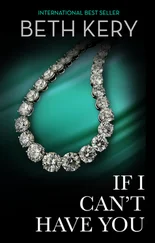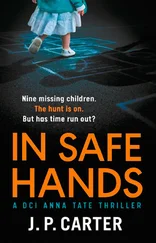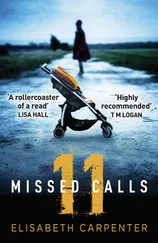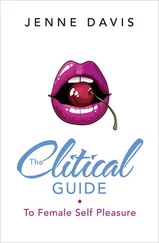“Hey,” I said, “do you remember that family driving away the other day? Wearing sheets?”
“Duh,” said B, glancing at me for a second or two.
“What do you think that was?” I asked.
B shrugged. Her face had taken on a slurred look, drooping at the corners.
“Have they been back?” I asked.
“I don’t know,” she said. “And I don’t care. That family was all assholes anyway. The way they used to look at me. I mean, they wouldn’t look at me. Like if they saw me smoking out on the roof, they’d just stare straight ahead like robots, like they thought watching me doing it would give them lung cancer. People in this neighborhood don’t pay any attention to me, so I don’t pay any attention to them.
“It’s a matter of principle,” she added, taking a dainty sip from her paper cup.
The magazine lay open on her lap, revealing a photo of a famous actress astride a terrified-looking horse. The actress leaned forward, cuddling the horse with one arm, the other raised in a gesture of triumph. “Do you think I could do that?” B asked, pointing at the page. I looked at the photo. I honestly didn’t know.
I felt like gagging. I went to my room and closed the door. B and C would make a great couple, I realized. They’d get along like crazy. I could imagine them now facing the TV as noise poured from its wide glass eye, happy and content as the rampant weirdness unfolded outside, their hands clasped together like a single, monstrously large heart. He wouldn’t mind the way B drank — he’d love it, in fact, the novelty of it, the sweet deadness of her breath after disgorging, the sense her body gave off that living was a wet and collapsing struggle.
May we eat as one, I thought to myself, because I had no idea what else to think. I closed the door to my bedroom and lay belly-down on my bed, pressing my face up to the open window. Through the black mesh screen, the house across the street was dark and impossibly still. The yellow glow from the streetlights stopped just short of the lawn, leaving a large blue-black expanse leading toward the house, opaque as an ocean. I pressed up to the mesh screen and smelled the thick green growth of summer writhing in the night. I felt the dark air on my face. I angled my head around, trying to see into their windows. The door was still ajar, windows illegible. Someone had propped some sheets of particleboard against the garage door, blotting out several of the scrawled words, and there was debris on the driveway, dark clods of vegetative matter that could have been lawn related. It was possible that they had come back while I was out with C, that they had snuck their sedan silently in, leaned the boards up against the garage to fake disuse. But I doubted myself. The words that man had scrawled on the door were meant to be seen. If they had been covered, it had been by someone else.
I rolled over and stared at the ceiling. C and I went away on a long road trip once. On our way north we stopped at a quarry where people paid a fee to drive their cars in, park them in the little public lot, and spend a few hours lying on thin towels spread out on rocks beside the cloudy water. There was a sun-bleached diving board at the water’s edge that you weren’t supposed to use; a doughy man in yellow swim trunks lay dozing on it. At the other end of the quarry the water was supposed to be fifteen feet deep, and you could jump off into it from the rock cliff above. C wanted to do this with such great enthusiasm that it couldn’t even occur to him that I might not. He took my hand and was leading me up this path, both of our towels wadded up under his arm, and when I asked him where we were going, he just said, “The top,” in a cheery way.
At the top there was some random trash, plastic soda pop bottles, and a set of keys that looked like they had been there a long time. You could see a long way, all over the quarry, all the way to the skinny preteens putting each other in fake wrestling holds down by the ice cream stand. Far below us, the water looked milky and frothy at the same time. “Are you ready!” C shouted in a way that wasn’t a question. Then he grabbed me around the middle from behind, his crotch soft against my ass, and leapt us over the edge. Because I hadn’t intended to jump, had no plan to jump, it didn’t really feel like I was falling as I fell. I just felt the movement all around me, like a gust of wind coming from the bottom up. Nevertheless, a ragged scream tore from me, one that sounded as if it had been cut out of me by a steak knife, and when I hit the water I was still going, swallowing some of the water by accident, which tasted like blackboard chalk. When we had paddled over to land again, C was excited, laughing. He held me and said that it seemed like I wasn’t afraid of strong feelings, and I let him keep thinking that even though I knew it was nearly the opposite of how I actually was.
I lay there. Think this through, I said to myself. Just because you weren’t the person he thought you were doesn’t mean that you won’t be that person at some other time, someday. It doesn’t mean that B is that person, or could be that person if she tried. It doesn’t mean you’re not you. It doesn’t mean that he doesn’t love you. I had enumerated the doesn’ts.
By then I was tired or maybe sad, so I turned the TV on.
On-screen there was another Kandy Kakes commercial. In this one, Kandy Kat has become a scientist so that he can crack the problem of Kandy Kakes, find out what makes their matter so disastrously incompatible with his own. Kandy Kat guides us through a series of diagrams on the chalkboard that elucidate the basic structure of a Kandy Kake: outer coating of crispy candy shell sprinkled with crushed nuts and a patented candy substance known only as “Choco Shrapnel,” then a layer of gooey caramel followed by two layers of rich chocolate of slightly different consistencies. Then a layer of fluffy cake, kept moist by the four layers of airtight, watertight substances surrounding it, then a layer of crisp chocolate cookie. At the center is the top-secret “Kandy Kore,” a dense, sugary substance whose chemical composition is known to only a few privileged individuals within the Kandy Kakes empire. Rumor has it the Kandy Kore is not strictly edible per se, in the sense that the special materials that give it its unique flavor are not thought to be made of food, specifically. No food that I’ve ever eaten shimmers with such beautiful, rich shades of green and pink. It’s like eating a gasoline rainbow, if gasoline tasted good. Dressed in a white coat, Kandy Kat rubs his hands together eagerly near a gigantic machine that promises to do something scientific to the lone Kake sitting on a pedestal directly beneath its beam. Even in the coat his ribs show through; it’s painful to see them. He pulls a lever and a beam of sizzling green light envelops the Kandy Kake, which Kandy Kat approaches reverently, his eyes growing wider and wider behind his professorial glasses.
Suddenly I had a thought, and I muted the TV.
What I heard was unmistakably the sounds of the same commercial playing in the living room, where B was still presumably sitting. It was muffled, yes, as if it were wrapped in a blanket, but I could make out the terrible grinding and cracking sounds that happen when Kandy Kat tries unsuccessfully to bite down on a Kandy Kake. It sounded as if someone were trying to repair a car, but with tools all made of bone and meat. I tried to picture her sitting there on the couch and watching, but all I could picture was myself, sitting on my bed, trying hard to picture something. I stared at the screen, at Kandy Kat trying to eat. He was biting so hard that his teeth cracked.

Читать дальше
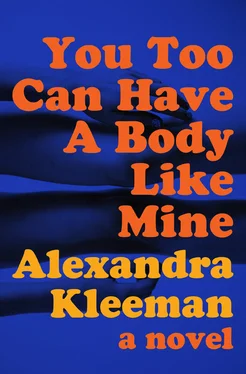


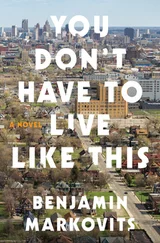
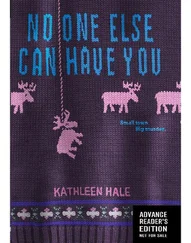
![Ally Carter - [Gallagher Girls 01] I'd Tell You I Love You But Then I'd Have to Kill You](/books/262179/ally-carter-gallagher-girls-01-i-d-tell-you-i-lo-thumb.webp)

